During a recent tattoo session, I found myself slipping into an existential crisis. Wait, what am I doing? Why am I here? I knew I wanted the design that I was getting, but I couldn’t explain why.
This inherent desire for tattoos is something that has scratched at the back of my mind since I first got inked seven years ago. So to help explain that unexplainable feeling, I decided to consult three groups of people to find out why we feel the need to get tattoos.
Tattoo Artists
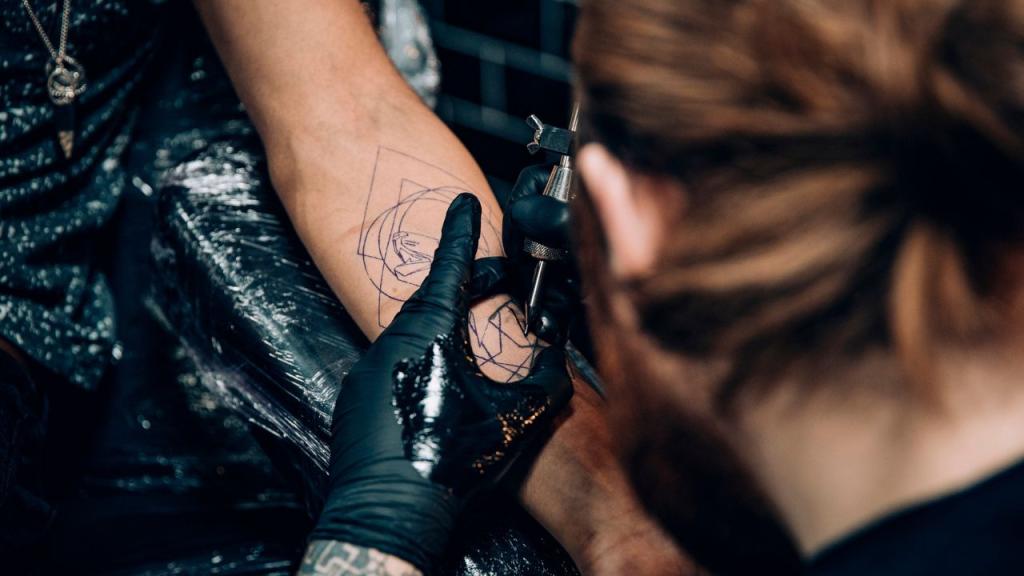
If there’s anyone who has the most exposure to the world of tattoos and the reasons why people choose to get them, it’s the artists.
Jose Carlos Jr. (aka Gordotaub) is one of the owners of Joya Tattoo Collective in Sydney. Having worked with hundreds of clients over the years, he’s seen the gamut of motivations for tattoos. From those years of experience, he said that primarily people are driven by sentimentality.
“[I see] a lot of celebrating, either some sort of achievement or milestone. Some people do it straight after they’re 18 to prove like ‘now I’m an adult’. Some people do it to honour deceased family members or to celebrate some sort of passion,” he explained.
“There’s always someone that is the person who has the funny or silly tattoos,” he added. “And to go one step further there are people who, once they start getting them, it looks incomplete if you have one on your forearm and not on the other one – so it’s purely an aesthetic choice.”
Another common reason, the tattoo artist pointed out, is cover-ups.
“It’s quite common to cover self-harm scars of scars from procedures. They use tattoos to disguise it and make it less obvious,” he said. “There’s also a lot of reworks and cover-ups, mainly of an old job that didn’t heal or age well, or they just grew out of it.”
That covers a lot of the reasons behind the everyday person getting inked, but what motivates you to give a tattoo?
“To me, that’s one of the highest compliments to your art,” he said. “They like what you do as art and are willing to pay to go through hours of pain to get it. It’s amazing. That’s, to me, enough to come to the studio every day.”
Psychologists
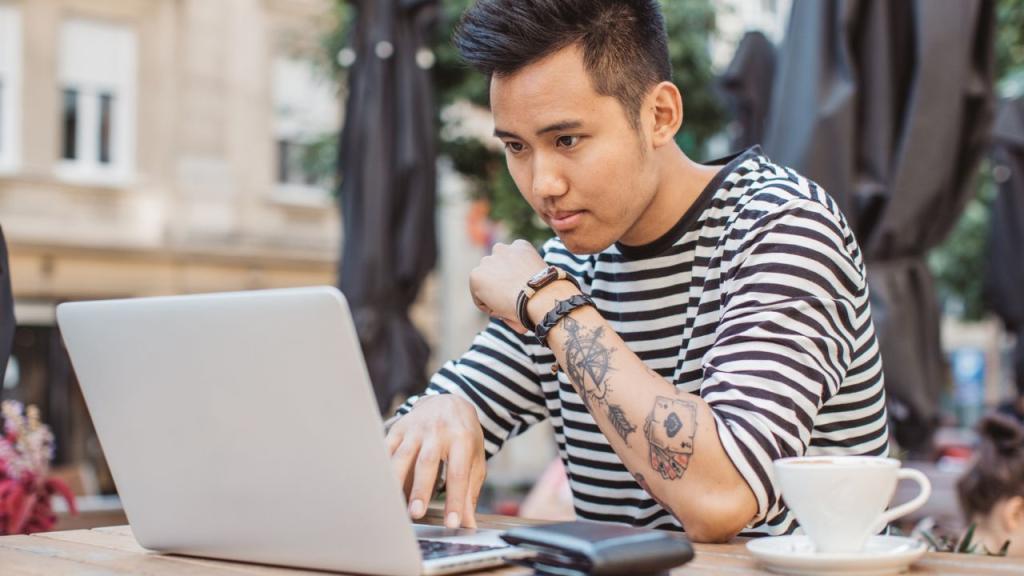
So we’ve covered a lot of the reasons people show up for tattoos, but let’s dig a little deeper. Why are our brains drawn to the idea of getting permanently inked?
For Dan Auerbach, a psychologist with Associated Counsellors & Psychologists, a lot of the time, it’s about identity.
“Tattoos are like a megaphone for self-identity. People get inked to show off their unique personalities and values,” he explained over email.
They can also play a big part in a person’s self-empowerment.
“Tattoos can be all about taking control and owning your body,” Auerbach said. “Studies show that people who’ve been through tough times or struggle with body image can use tattoos to regain control and boost their body positivity.”
Christina Foxwell, the counsellor and life coach behind Ignite Purpose, concurred saying that tattoos can lift confidence.
“There is a definite boost to self-esteem and confidence. Many times, tattoos reflect the emotions experienced and could even give them a sense of belonging or allow them to feel they can individually express themselves,” she said.
“Tattoos help people feel empowered and in control of their lives, increase their creativity and allow them to show up as themselves.”
Naturally, similar to the artist’s perspective, there’s more than one psychological reason behind tattoos. Another is the emotional meaning of the designs, which Auerbach said can help people deal with grief or commemorate loved ones.
“Tattoos can be a powerful outlet for emotions, helping individuals process and heal,” he explained.
Tattoos are also influenced by trends and culture, with Auerbach pointing to peers or cultural traditions playing a big role in the decision to get inked.
“Some cultures see tattoos as important rites of passage or symbols of social status,” Auerbach said. “Plus, the media, with its celebrities and influencers, can also shape tattoo culture.”
The Tattooees
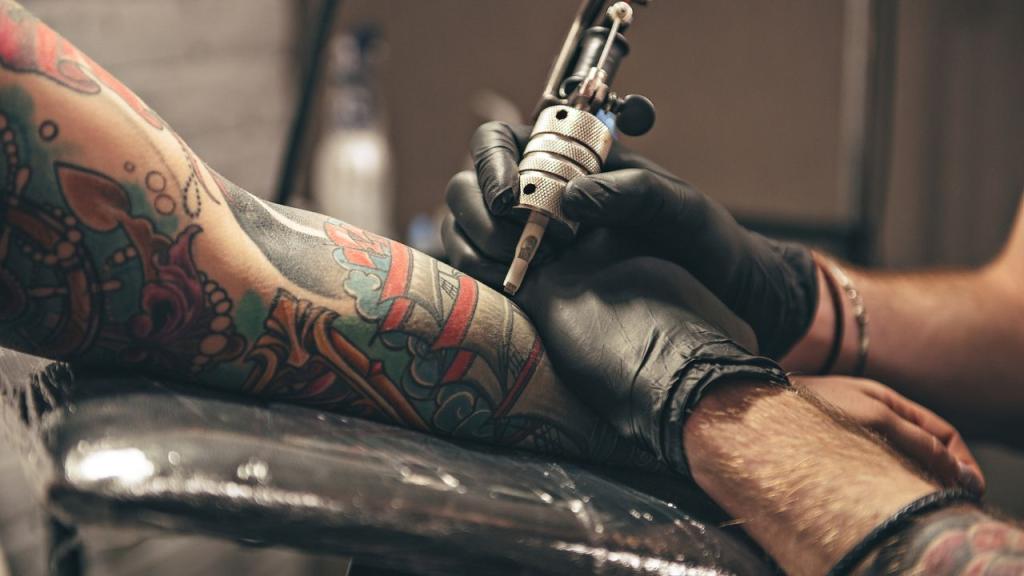
There is some obvious crossover between the artist’s and psychologist’s viewpoints on this topic, but does it correlate with that of the people who are getting inked?
I surveyed a group of my colleagues in the office and found that many of their answers aligned.
“I look at them as little accessories to express myself” – Shantelle
“The honest truth is that I just think they look nice! I wanted these designs for many years and while, yes, there is an element of personal significance to them, I just enjoy the art more than anything else.” – Steph
“I just love the idea of having art on your body.” – Sabrina
“My first tattoo was after my father passed away and was definitely part of the grieving process. But since then, I’ve gotten seven other tattoos simply because I thought they looked cool.” – Ally
“I thought they were hot and it’s almost like a rite of passage.” – Julie
“I liked the idea that you can decorate yourself in a way that gives you character even when you can’t express yourself with clothes.” – Rachel
What does this look like in practice? When it came to the stories behind their specific designs, examples came up like the state flower of New York to symbolise the time living in a different city, a porcelain sculpture that commemorated a gift from a deceased loved one, and a hand-poked backpiece that resulted in a 20-hour session that turned artist and client into friends.
No Ragrets
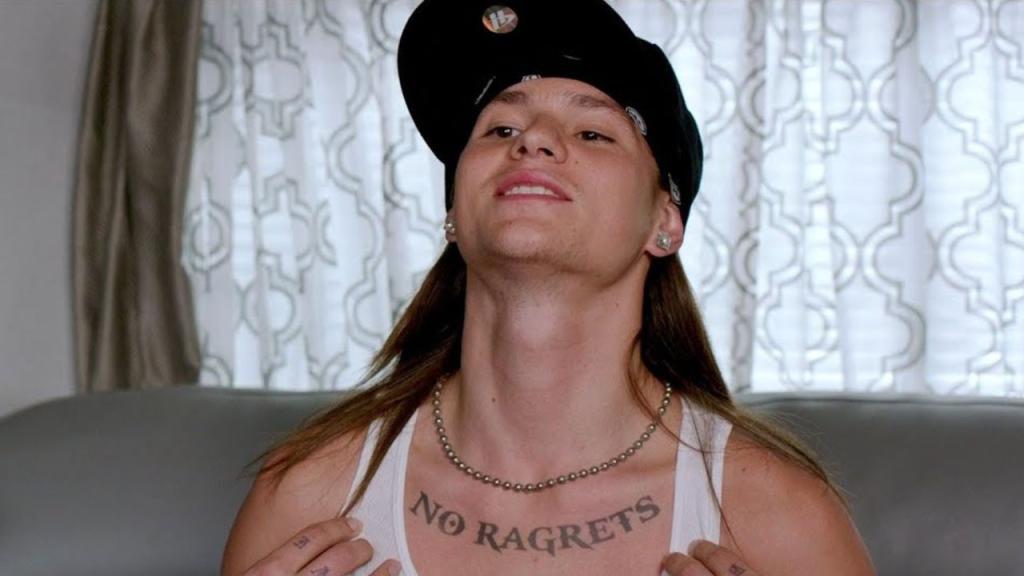
Tattoos are often viewed as a Big Deal because of their permanency. And at the end of the day, that is true.
A tattoo is one of the most permanent choices a person can make in their life. More so than buying a house or getting married, a tattoo is a commitment you make with your own body and one that is oftentimes irreversible.
Like with any big life decision, it can come with its share of regrets.
From the artist’s POV, Gordotaub said any regrets he’d experienced from clients were often more aesthetic-related rather than regarding the actual subject of the tattoo.
For the people, respondents were split, with many saying they’d never regretted a tattoo. Others said their regrets mainly came down to bad healing or a poor choice of tattoo artist.
“They all hold a memory and remind me of the different stages of my life – even if they were pointless and not thought out!” Sabrina said.
So have I cracked the case on tattoo motivations and solved my existential crisis? Not exactly. I might need to see some of those psychologists separately for that.
What I have discovered is that your tattoo will inevitably become a part of your identity, and there’s no right or wrong reason for that.
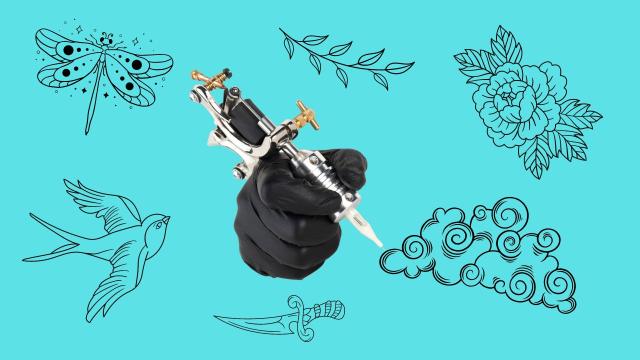
Leave a Reply
You must be logged in to post a comment.